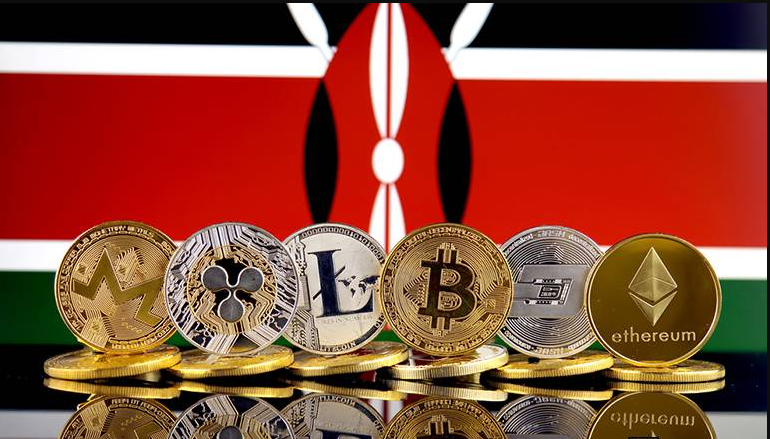
The Kenyan crypto ecosystem is relatively young compared to other ecosystems in first class economies globally. Ever since the CBK(Central Bank of Kenya) relaxed its stance on crypto products, the sector has garnered adoption by residents especially the young educated population. According to authorities, the global crypto market serves at least 4 million Kenyans. Despite the government’s relaxed stance on such products, the sector faces skepticism from majority of the population who term it as shady and a fraud with no real economic value. In past years, the Kenyan government set up a blockchain and crypto enquiry commission to study crypto products and give recommendations on the potential applications of the technology but not much has been accomplished since.
In a recent stance, the Kenyan government through The Kenyan Treasury is seeking a 1.5% tax on commissions obtained from crypto exchanges serving over 4 million Kenyans. The Treasury seeks to adopt a new regulation to guide the payment of a digital service tax by crypto firms facilitating the exchange of crypto products in Kenya. However, it is pertinent to note that most of these crypto exchanges are foreign and based outside the country’s jurisdiction. According to an act published and adopted by the Treasury Cabinet Secretary Njuguna Ndung’u, taxable electronic, internet and digital market place includes online payments for the exchange or transfer of digital assets among other related services.
According to data, a Kenyan invests an average of KSH 2 000 in crypto products including cryptocurrencies and other digital assets. It is probably important to define some terms so as to give some context to this development. A digital asset is a virtual or electronic product that is stored digitally and has value. Some of these digital assets are backed by real-world assets like fiat currencies, real estate holdings, art and even precious minerals like gold and silver. These digital assets can store value and used to transfer value on blockchain networks like Ethereum, Bitcoin, Polygon, Aptos, Solana and many others. Some of these chains have their own native digital assets like ETH for Ethereum, SOL for Solana or BTC for Bitcoin and so on. These assets can be publicly traded on crypto exchanges like Binance, Kraken, Bitnex, Coinbase and UpBit among many others. The Kenyan Treasury is therefore aiming to tax proceeds from such operations that generate revenue.
Back in 2021, the Treasury imposed a 1.5% tax on crypto firms based out of Kenya but serving Kenyans in their operations in a move that was directed towards cutting tax evasion by foreign actors. Normally crypto exchanges that facilitate the buying and selling of digital assets charge a fee of between 0.9% and 4.9% to cater for the facilitation of the exchange facility.
Kenya was ranked the top in digital cryptocurrency ownership within Africa. Other countries that were ranked in the same sector include South Africa, Nigeria, Ghana, Morocco and Egypt in that order. According to the United Nations Conference on Trade and Development report, at least 8.5% of the Kenyan population owns cryptocurrencies. The percentage translated to actual figures bring the total number of users to 4.25 million.
The crypto market is known for its unpredictable price swings, a fact that has led several regulators like the CBK to give warnings about the sector. According to regulators, Kenyans should exercise caution when investing in such products as they have a high prevalence to risks and ultimate failure. This was witnessed in the last year at the height of the crypto winter and government sanctioned crackdowns where several crypto firms and products failed including Sam Bankman’s FTX and other crypto affiliated firms like Voyager and Genesis. Some closed shop due to the cash crunch crisis, liquidity woes or even unwise investments. The turmoil also caught several crypto-friendly Banks in its wake including The Silvergate Bank, Silicon Valley Bank and The Signature Bank. In general such developments don’t inspire confidence for the Kenyan population that is highly skeptical about crypto products.
Author’s Sentiments
With the Kenyan crypto industry being underdeveloped, many crypto enthusiastic Kenyans have found refuge in foreign crypto offerings and products from firms operating outside the country. In this era access to such products is easy as all one needs is stable internet connection and access to decentralized applications that are supported in a myriad of devices. The Kenyan market has its own native crypto firms but most kenyans make use of foreign more stable firms despite the relatively high costs. The government’s new tax row therefore indicates that Kenyans might have to pay more to continue transacting on these foreign exchanges. It is however not clear how this new regulation will collectively impact on the kenyan crypto market. Stay tuned for more updates and leave your comment on the matter below.








